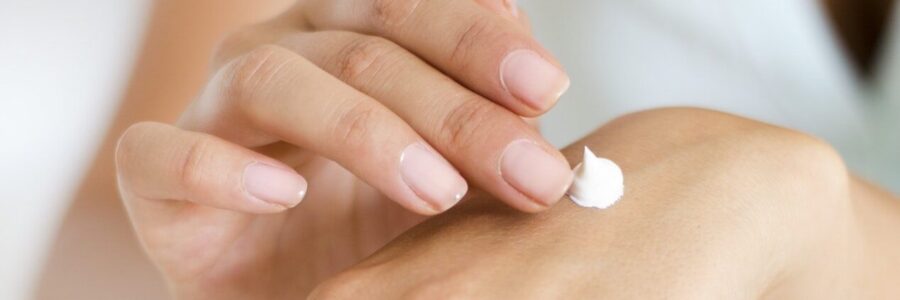Every day, we apply as many as ten personal care products to our bodies. On average, that’s exposure to 126 different ingredients a day. Interestingly, the federal cosmetics law in the U.S. was written over 70 years ago, and the FDA has only banned eight ingredients since then. For comparison, the EU has banned 11,000.
Those statistics are somewhat concerning, which means it’s up to me and you to read labels and educate ourselves about which ingredients to avoid in our skincare products.
Here’s a list of potentially harmful ingredients that are best to avoid in your everyday products. Afterward, I’ll also provide some tips on how to choose the best products for your health.
Paraben: It will be listed on the label with as ethyl, propyl, butyl, or methylparaben. This harmful preservative is found in 75% of personal care products available in the U.S. It’s been scientifically proven to stimulate the production of estrogen, which can lead to an increased risk of breast cancer.
Coal Tar Dyes: This known carcinogen is often found in things like psoriasis shampoos, hair dyes, and other skincare and cosmetic products. It can be listed as CI, D&C, FD&C, or p-phenylenediamine.
Formaldehyde: It’s usually listed on ingredient labels as formalin, Quanternium-15, or DMDM hydantoin. Formaldehyde is a known carcinogen. Watch out for it in nail polish, deodorant, shampoo, and many other personal care products.
1, 4 Dioxane: According to the EPA, this common ingredient is a likely carcinogen. You will see it listed as PEG or ingredients that end with “oxynol” or “eth” on your ingredients lists. Unfortunately, it’s often found in baby products, hair products, and anti-aging products.
Sodium Lauryl Sulfate (SLS) or Sodium Laureth Sulfate (SLES): This surfactant is most often used in shampoos and body washes. It usually contains 1, 4 dioxane and it can cause skin rashes, eye irritations, and allergic reactions.
Phthalates/Fragrance: Look for DEHP, DBP5, DHP, or dibutyl phthalate on the label. The EPA lists phthalates as a likely carcinogenic. It’s a common ingredient in fragrances, but fragrances don’t have to list their ingredients, so you should avoid fragrance entirely to be safe. Pure essential oils are much safer.
Triclosan: You’ll probably recognize this ingredient from your antibacterial hand soap, toothpaste, or hand sanitizer label. It has the potential to disrupt endocrine and thyroid function.
Petrolatum: This chemical is a petroleum derivative that can “suffocate” the skin as well as disrupt the endocrine system and even potentially cause cancer. It’s found in a wide assortment of personal care products.
While this list seems long (and daunting!), here’s some general advice to follow when shopping for skincare products that will keep you and your family healthy:
- Choose products with a short ingredient list. Fewer ingredients mean less chance of an adverse reaction.
- Be aware that claims like “hypoallergenic,” “dermatologically tested,” and “safe for sensitive skin,” are not regulated by the FDA so that anyone can slap these claims on their products.
- Always avoid synthetic fragrances, especially if you have an active skin condition like psoriasis or eczema. Not only can fragrances cause allergic reactions, but they are also usually made from petroleum-based products.
- Don’t change every product at once. Choose one product to change and try different alternatives. When you find one you like, stick with it. Then, when you are ready, choose another product you use to change.
One step in the right direction each day can make a real difference over the long haul. By educating ourselves and making small changes over time, you and your family can achieve better health and skin.
Want to Learn More?
Click HERE to get the Amethyst Holistic Skin Solutions Newsletter. You’ll receive interesting information about skin health via articles, before/after pictures, case studies of Amethyst patients, videos, interviews and more. Feel free to share this article with someone who you think may benefit.
About the Author
Olivia Hsu Friedman, LAc, Dipl.OM, DACM, Cert. TCMDerm, is the owner of Amethyst Holistic Skin Solutions and treats Acne, Eczema, Psoriasis, and TSW. Olivia treats patients via video conferencing using only herbal medicine. Olivia is Chair of the Board of Directors of the American Society of Acupuncturists, serves on the Advisory Board of LearnSkin, and is a faculty member of the Chicago Integrative Eczema Group sponsored by the National Eczema Association.



